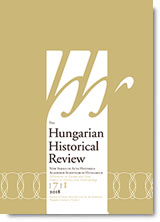Was There a Socialist Type of Anthropocene During the Cold War? Science, Economy, and the History of the Poplar Species in Hungary, 1945–1975
Was There a Socialist Type of Anthropocene During the Cold War? Science, Economy, and the History of the Poplar Species in Hungary, 1945–1975
Author(s): Robert BaloghSubject(s): Post-War period (1950 - 1989)
Published by: Magyar Tudományos Akadémia Bölcsészettudományi Kutatóközpont Történettudományi Intézet
Keywords: anthropocene; science studies; history of forestry; state socialism; paper production
Summary/Abstract: The paper argues that exploring the content and sites of transnational entanglements is a more adequate way to study the relationship between the Cold War and the Great Acceleration phase of Anthropocene than looking at the so-called East vs. West in isolation. By focusing on how scientific ideas, economic concepts, industrial projects, and data production emerged and intertwined in the case of activities related to poplar trees in Hungary, it becomes clear that anthropogenic landscape change during the state socialist period was embedded into the global circulation of ideas about forests, materials and ecology. The paper also points out that forestry is a relevant area of knowledge for studying the reasons behind anthropogenic change leading to the Anthropocene because of continuities it provides across World Wars and regions, and because the profession engages with biological knowledge production, business interests, political demands regarding long-term economic growth, and notions of ecological crisis in its everyday practice.
Journal: The Hungarian historical review : new series of Acta Historica Academiae Scientiarum Hungaricae
- Issue Year: 7/2018
- Issue No: 3
- Page Range: 594-622
- Page Count: 31
- Language: English

